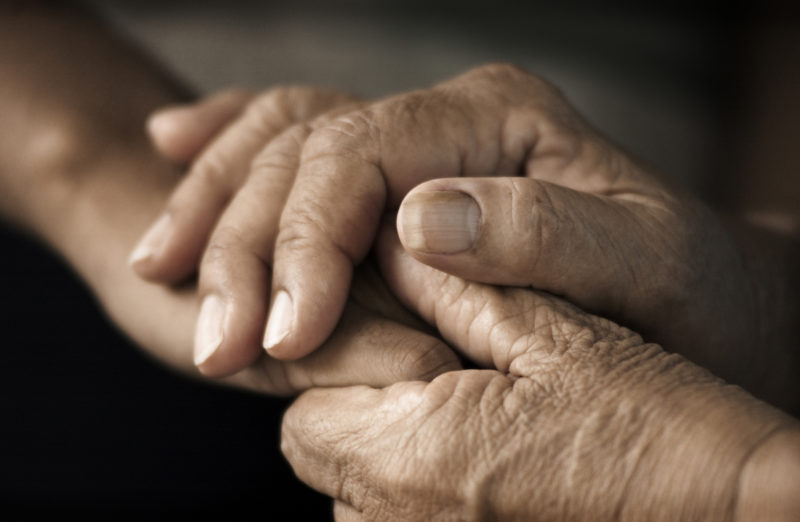“I couldn’t have done it.”
These were my cousin’s words upon seeing me for the first time in several years. They tumbled out of his mouth without context, even before saying hello, as if I caught him in the middle of a thought, as if this was the thing about which he was completely preoccupied.
This happened last year while on a trip to Israel. I had been excited to meet up with my cousins living there. I would have grown up alongside them had my parents not received a sponsor, at the last minute, bringing them to Canada. Our parents had all been Holocaust survivors, so despite the miles between us, we had forged a special bond.
“Avi,” I responded, “It is so great to see you, but what you are talking about?”
“My parents,” he answered. “I think about them all the time. I don’t know how they did it. I don’t know how they survived the camps and the torture they were put through and still had the strength to build a new life in Israel where they struggled anew.
“I know that I could not have done it.”
Avi’s words were completely understandable. For I too asked myself the same questions. I stood in awe of my parents and the way they coped with life after the darkest, most cataclysmic event in Jewish history. With each passing year, that sense of awe grew just like it did for Avi.
Avi and I reminisced over coffee. We talked about how alike our respective parents were, how hard-working, resourceful, and hospitable. But what we both remembered most was their capacity for love. Whatever torment lay buried in their souls, they displayed warm smiles and inexplicable strength.
Later that evening, I met up with Shraga, another cousin whose parents were also Holocaust survivors. Over dinner, I asked if his parents had shared their Holocaust stories with him and his sister. Shraga, a career pilot in the IDF, was not an emotional kind of person and rarely demonstrated a vulnerable side. So I was a little caught off guard when I noticed him fighting back tears.
“I discovered only recently that my father had had a first wife and children,” he responded. “Four of his little sons were murdered in the crematoria of Treblinka. How was my father able to go on after that? I could not have done what he did. My parents had such a hard life. We had it so easy.”
I knew from my mother that my cousin’s family had really struggled to make ends meet. I knew that Shraga had served in many of Israel’s wars and had seen his own three sons serve in the IDF. His life sounded anything but easy, but as he compared himself to his parents, he felt his own life had been privileged. He went on to lament that the survivors had not been lauded in Israel as the heroes they deserved to be. Instead, they were looked upon as the Jews of the Old World, the Jews that went to their deaths like sheep to slaughter. “In the Israel of the past,” Shraga explained, “we needed to create a new self-image borrowed from the persona of the Maccabees.”
But that is changing now. As Shraga put it, “we realize that we made a mistake. I personally realize how wrong was the old view of the survivors. Many of them had been incredibly brave and strong. They possessed a strength that not only enabled them to survive but also enabled them to continue. The survivors in Israel helped to build our country. They contributed so much having had so little.”
Later that evening, it occurred to me that Avi and Shraga’s comments paralleled changes in the psychological literature, where social scientists also seem to be viewing Holocaust survivors in a different way. In the 1970s, numerous studies were published documenting the psychological ramifications of having survived Hitler’s death camps and catastrophic trauma. These studies were of crucial importance. They made the survivors an object of scientific study, conferring validity upon their unique psychological challenges. Some of the studies noted that while many survivors appeared to adapt well to their circumstances, many of them were tormented on the inside. Unsurprisingly, what emerged were reports of profound survivor guilt, depression, anxiety, hyper-vigilance, nightmares, difficulties raising children.
Given what they had experienced, these outcomes were hardly surprising. Survivors had earned the right to their pathology. How could any human being not be afflicted by debilitating symptoms, given what they were forced to endure and what we now know about the devastating impact of trauma?
And yet, in recent times, social scientists when describing the survivors as a whole often use the adjective “resilient.” The passage of the years, it seems, has allowed us to take another look at the survivors and what they were able to accomplish while coping with immense internal pain.
READ: MORE THAN HALF OF CANADIANS DON’T KNOW SIX MILLION JEWS DIED IN HOLOCAUST: POLL
At a time in Jewish life when, sadly, we are losing more and more of our precious survivors, it is important to establish how they are to be remembered and what constitutes their legacy. It is my hope that the survivors will be remembered for their resilience and willingness to take a chance on life again in the aftermath of one of the most horrendous traumas ever documented.
Crawling out of hell, deeply wounded, without adequate support or money or language or family, unable to fully grieve their irrevocable losses, they found a way to keep going and the strength to rebuild their broken, shattered lives.
“How did they do it?” This was the question posed by both my cousins.
The answer, I believe, continues to elude us.







